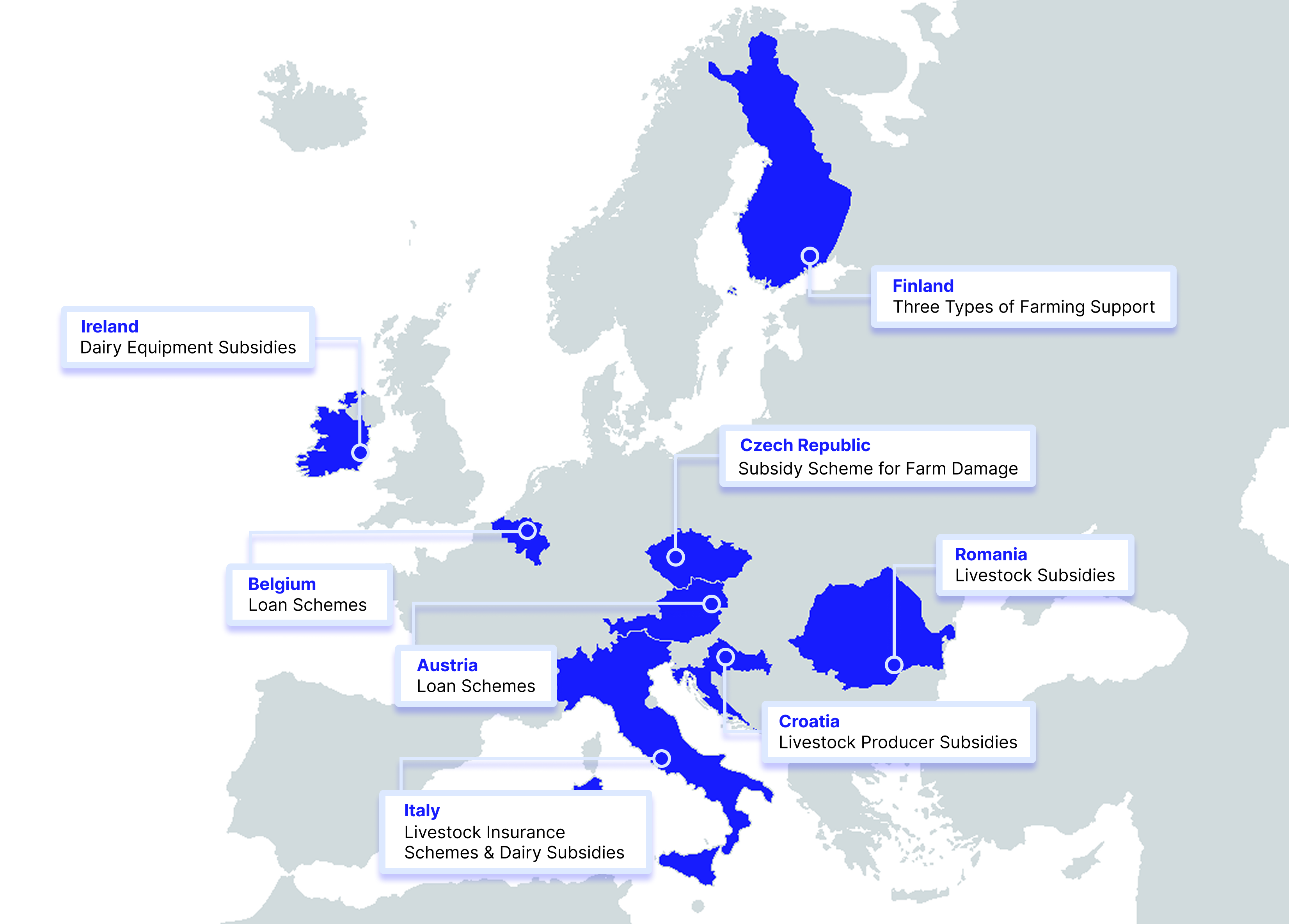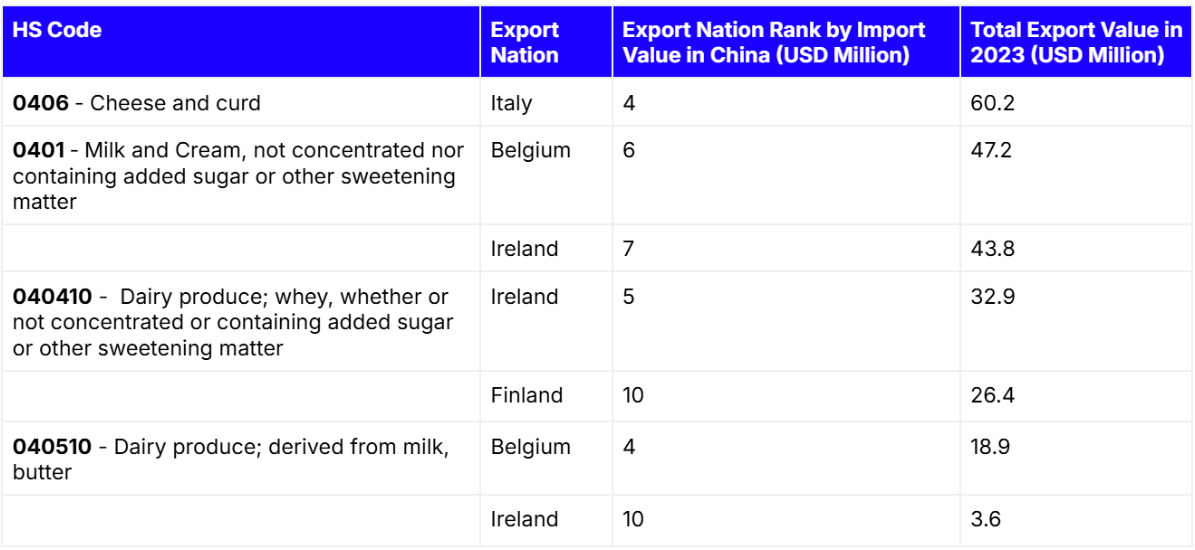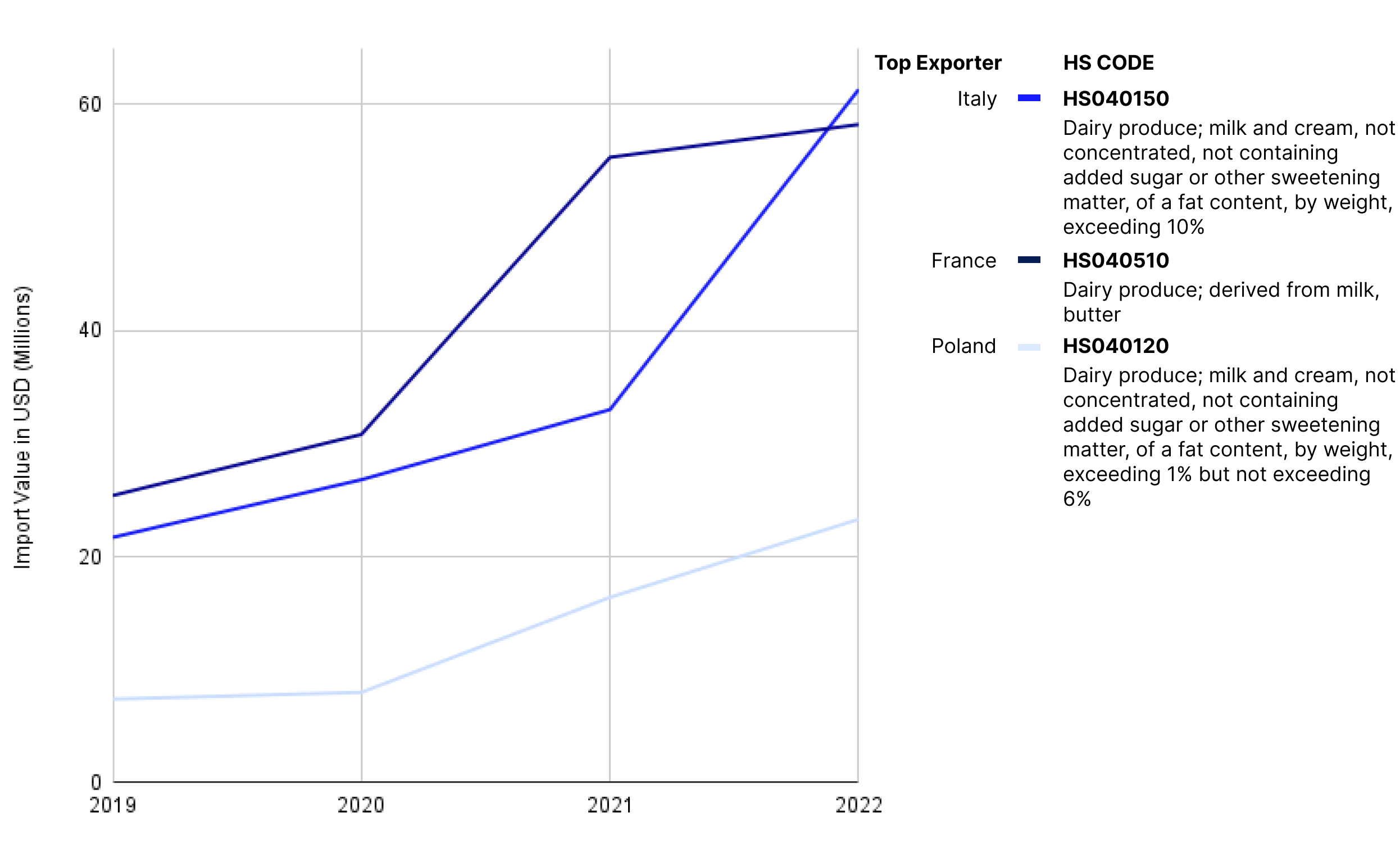China Targets EU’s Dairy Industry, Intensifying Tensions

China Targets EU’s Dairy Industry
On August 23, China's Ministry of Commerce (MOFCOM) announced the launch of an anti-subsidy investigation against the European Union’s (EU) dairy industry. The investigation will examine 20 subsidy programs covering fresh and processed cheese, milk, and cream for human consumption in eight member states, including Austria, Belgium, Croatia, the Czech Republic, Ireland, Finland, Italy, and Romania. A wide variety of dairy products could be subject to tariffs on their export to China.
Eight EU Nations Subject to the Anti-subsidy Investigation

Source: Tridge
The announcement comes a day after the European Commission (EC) announced the revised tariff on Chinese-made Battery Electric Vehicles (BEVs). This prompt response is one of many retaliatory measures the Chinese government has imposed against the EU’s agri-food industry after the EC initiated its anti-subsidy investigation into Chinese BEVs.
Retaliatory Measures Against the EU’s Agri-food Industry
Timeline of the Chinese Government’s Retaliatory Measures and the EC’s Investigation into China’s BEV Imports

Source: Tridge
Oct-23, Initiation
The EC’s investigation into China’s BEV was initiated on Oct-23, when the EC President expressed concerns that China’s unfair subsidies and artificially cheaper electric vehicles were flooding and injuring the European electric vehicle (EV) market, of which China has an 8% market share.
Jan-24 to Aug-24, Escalating Tensions
Since the EC’s initiation, China has imposed retaliatory measures targeting brandy and pork imported from the EU. In Jul-24, the EC confirmed that Chinese EV manufacturers unfairly benefited from government subsidies. Thus, to level the playing field, EVs manufactured in China will be subject to new duties ranging from 17.4% to 37.6%, effective July 5.
Current Update
Announced on August 20, the most recent tariff update has been revised lower since June’s provisional measures. For example, BYD, Geely, and SAIC, some of the largest automakers in China, have been subject to lower tariff rates. In addition, the current projected duties are set to be 21.3% on average for companies cooperative with the investigation and 36.3% for those uncooperative. However, this tariff is subject to change in the final ruling on Oct-24 or Nov-24, especially after China’s retaliatory measures.
Tariff Update of China’s Three Major Automakers
.png)
Source: Tridge
Implications for the EU Dairy Industry
According to Tridge's data, the EU nations subject to the investigation are some of the largest dairy exporters to the Chinese market, namely Ireland, Belgium, and Italy. In 2023, Ireland exported around USD 120.8 million, Belgium USD 86.3 million, and Italy USD 86.1 million for dairy products (HS Code 04).
EU Dairy Exports to China

Source: Tridge
Next Steps for the EU
Although several EU members stated that the EC will “carefully scrutinize” the investigation and remain committed to “firmly defending the interests of the EU dairy industry,” the countries under investigation should consider exploring export opportunities in other Asian markets, including South Korea.
Increase of EU Dairy Exports to South Korea (2018-2022)

Source: Tridge
According to Tridge, South Korea has some of the highest raw milk prices in the world, which has driven an increase in dairy imports. Tridge data reveals that Italy, France, and Poland are key exporters of dairy products to South Korea, highlighting strong demand for EU dairy products and potential opportunities for other EU nations.
China's investigation into the EU's dairy market is expected to take up to 16 months, providing ample time for EU exporters to explore and diversify into other markets, particularly as China is likely to launch additional investigations amid rising trade tensions.



